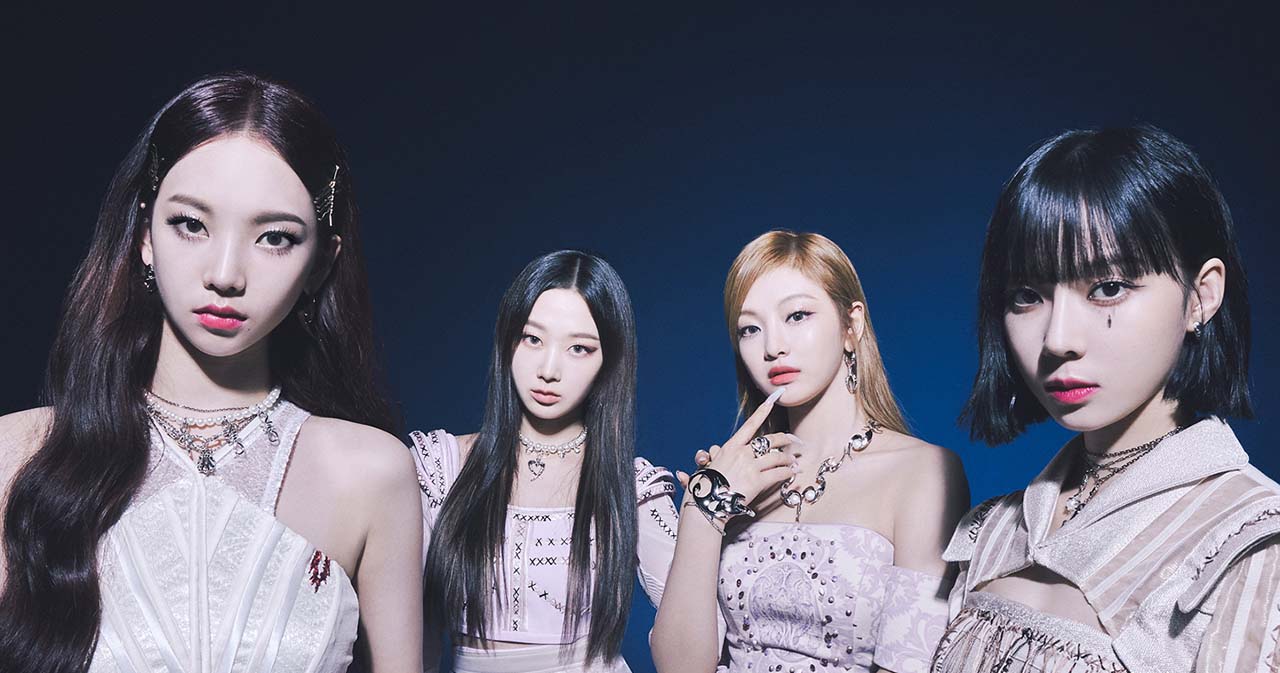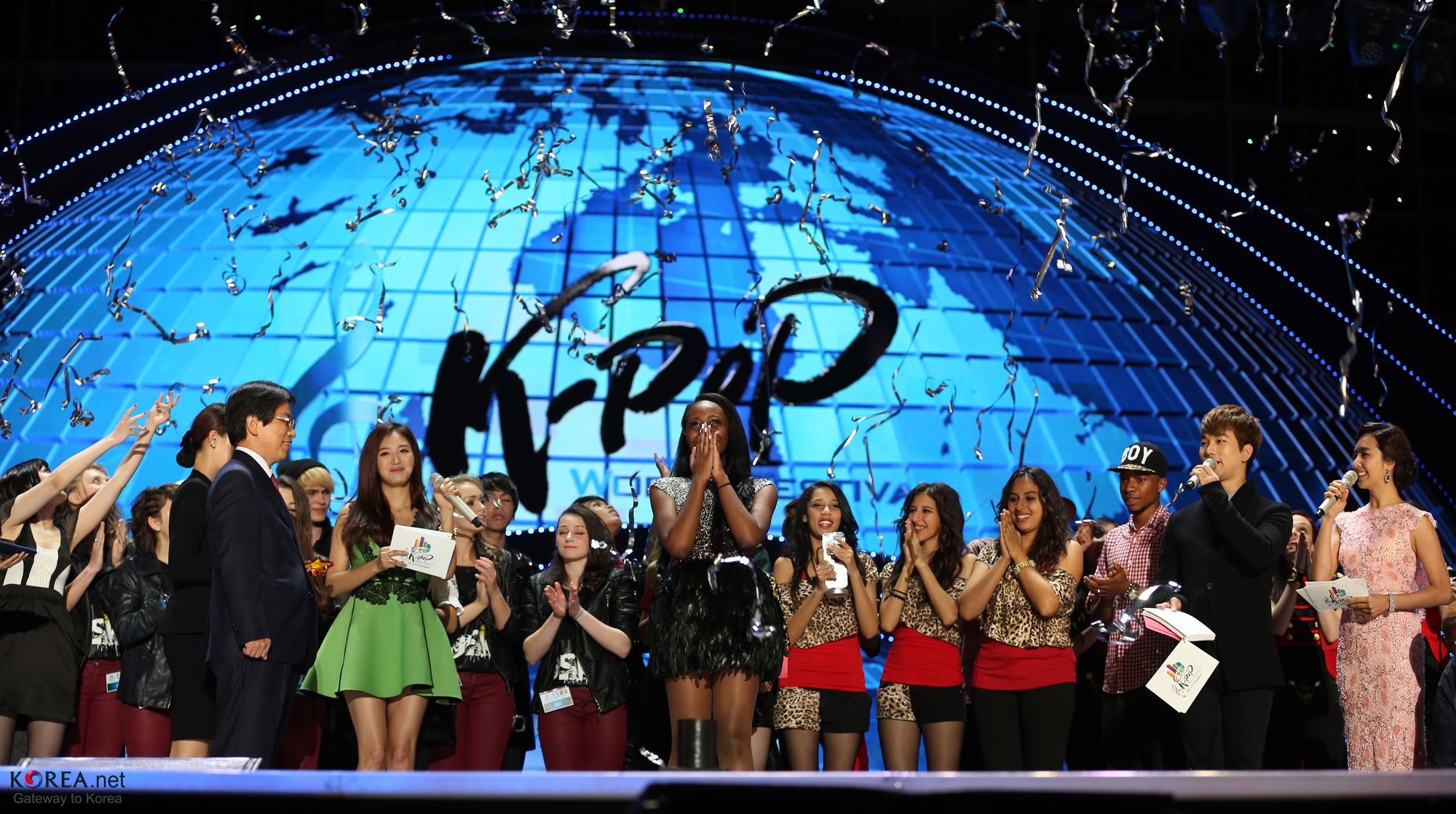[Essay]How do Female Fans Interpret K-pop Girl Groups?
Most of the participants indicated that they had ceased being fans of male idols and had instead become fans of female idols. This shift was primarily due to their disappointment with male idols involved in misogynistic incidents...
Author : KIM Sae won (Seoul Nationl University)
K-pop female idol groups, especially those referred to as fourth generation idol groups, are currently experiencing an explosion in popularity. These groups are reshaping the K-pop landscape, setting unprecedented records in both digital and physical album sales, attracting attention both domestically and internationally, and are now considered to be the mainstay of the K-pop scene. Historically, the K-pop industry has exhibited a long-standing trend of male idols catering to a dedicated fanbase, while female idols pursue a broad popular appeal.
This trend clearly shows that male idols tend to receive less public recognition but have a dedicated, loyal fanbase, while female idols may have fewer fans and lag behind in terms of album sales. As a result, female idols often prioritize creating catchy songs to appeal to a wider audience, rather than focusing on musical quality or expanding their fan base. In addition, during the period when traditional stereotypes persisted, suggesting that male idols catered primarily to female audiences while female idols catered to male audiences, agencies managing female idols focused primarily on creating concepts to attract male viewers.
Breaking Stereotypes
In recent years, however, female idol groups have challenged these stereotypes by not only dominating the K-pop scene, but also attracting female fans comparable to their male counterparts. The statistics on the gender ratio of album purchasers also prove this. For example, the gender ratio of album purchasers for the fourth generation of female idol groups released in 2023 showed that the majority of purchasers were female, accounting for more than half.
Women who engage in fan activities for female idol groups have previously faced significant stereotyping, such as assumptions about their sexuality or accusations of contributing to the sexualization of women, even from other women. Particularly from the perspective of traditional feminism, female idol groups have been criticized for perpetuating a form of femininity influenced by patriarchal values. However, as the presence of female fans has become more visible, perceptions of female idol groups are shifting, and agencies have actively targeted female audiences by introducing concepts and lyrics that emphasize female agency and empowerment.
How should we interpret the phenomenon of female idols gaining substantial support from women? What does it mean for Korean society? In order to understand the cultural phenomenon of women's enthusiasm for female idol groups, I conducted interviews with 20 female fans of fourth-generation female idol groups. Specifically, I sought to identify the factors that lead women to become fans of female idols and to explore how they interpret the images and music of these idols.
Relevance to Feminism?
When asked about the reasons for the recent significant increase in female fans of female idol groups, most participants cited common factors such as misogynistic comments from male idol groups, accusations of bullying at school, gambling, and drunk driving accidents. They also expressed an interest in feminism. Among the various incidents mentioned, the "Burning Sun Scandal" was the most significant trigger that led to their withdrawal from male idol fan activities. The Burning Sun scandal, which unfolded in 2018, was a criminal case that shook not only the South Korean entertainment industry, but also the entire nation.
This scandal disillusioned many female fans, causing them to withdraw from their fan activities. In addition to the Burning Sun scandal, various other incidents such as the use of misogynistic lyrics and remarks by male idols and the "feminism reboot" have made female fans hesitant to engage in male idol fandom activities. This hesitation persists even when a new idol catches their eye, for fear that misogynistic incidents will disrupt their fandom experience.
In essence, participation in male idol fandom activities is now associated with anxiety and the potential risk of such incidents.Female fans, discouraged by recurring incidents involving male idols, claim to find emotional comfort in their fan activities centered around female idols. In the interviews, several fans described the relationship between female idols and female fans using terms such as "sister," "family," "friend," and "solidarity.

Justifying Strategies
Contrary to the views of many participants, it may be somewhat insufficient to explain the rise of female fans solely in terms of misogyny among young male celebrities and the resurgence of feminism. In fact, contrary to their argument, the desire to continue idol fandom activities that do not contradict feminist values also influenced this fandom shift. After the "feminism reboot," female fans grapple with conflicting desires: the desire to continue their fandom activities and the need, as feminists, to distance themselves from male idols. After the feminism reboot, continuing their fan activities of male idols may invite criticism from some feminists. In addition, the trend of political lesbianism has become prominent among K-pop fans since the feminist reboot.
In South Korea, there have been various debates and discussions about political lesbianism, especially on Twitter. In this context, political lesbianism advocates that women should exclude men and promote solidarity among women when dealing with gender issues. In other words, political lesbianism in South Korea does not necessarily involve romantic or sexual relationships between women, but emphasizes the declaration of disengagement from heterosexual relationships in pursuit of a common goal of women's liberation. This form of political lesbianism reflects the current feminist landscape in South Korea, where the rejection of men and heterosexual relationships is considered essential to being a true feminist.
For example, in female-only online communities, it is common to see community members mocking female fans of male idol groups as nammotil (nammotil is a derogatory Korean term referring to a woman who cannot live without men) or nammisae (nammisae is another derogatory term referring to a woman who is crazy about men). Some female fans of male idol groups who are aware of gender issues and openly express their disdain for typical South Korean men even self-deprecatingly refer to themselves as nammisae because they cannot give up their fan activities.
Conversely, women find it easier and safer to express their admiration and affection for female idols. Importantly, the preference for female idols is not seen as contradicting feminist values, unlike the preference for male idols. According to research conducted by Cho and Lee (2023), some self-identified feminist female fans even consider their preference for female idols over males as a form of feminist practice and integrate it into their feminist activism. Furthermore, it is evident that newer idol producers actively incorporate feminist codes that appeal to female fans as a means of generating revenue.
As a result, female fans choose female idols as an alternative to male idols because it allows them to continue their fan activities more safely. They perceive criticism of female idols or their fan communities as an attack on feminism itself and construct a narrative to justify their idol preferences and fan engagement. Phrases commonly found in female-only online communities, such as "female celebrities should never be attacked," reflect this approach. In doing so, they sometimes prevent constructive discussions about the idol industry and the negative aspects of fan culture.
Neoliberal Desire
Unlike in the past when female fans were involved in male idol fandom, it turns out that female fans feel "admiration" toward female idol groups. During the interviews, most participants frequently used words such as "admiration," "inspiration," "self-management," and "role model" to describe their favorite female idols.
Female fans do not only focus on emulating the appearance and style of their favorite female idol group members. Several respondents stated that they are positively influenced by their favorite female idols because of their hard work and dedication to self-improvement, which includes aspects such as fitness and language learning, as well as their personalities and humanity.
In addition, the fourth generation of K-pop girl groups are reshaping the K-pop industry landscape by moving away from songs about heterosexual love and focusing on the concept of "self. The majority of female fans are enthusiastically embracing this change. Young women's enthusiasm for female idols' songs that express empowerment and self-confidence, as well as their adoption of these idols as role models for achieving success, can be seen as a reflection of the insecurities faced by young women in the neoliberal era.

Contradictions in Fandom
Recently, young women who used to be interested only in male idol groups have begun to passionately embrace the music and self-identify as fans of female idol groups, and have raised their voices to improve the working conditions of female idols. While this is undoubtedly a positive phenomenon, can we conclude that all issues related to the excessive demands of self-management, appearance, and emotional labor for female idols in the idol industry have been resolved simply because more women are enthusiastic about female idol groups? Furthermore, can we interpret all of the activities of female idol fans as inherently feminist? It is wrong to assume that all fans are inherently feminist just because the majority are women, and the evaluation of female idols' reception by female fans is not always consistently positive.
Fourth generation female idols present assertive concepts rather than passive representations of femininity and sexual objectification. Most female fans embrace these concepts and images positively, but the feminist elements presented by the idols are ultimately in line with the industry's intended strategy. However, instead of critically decoding the images and strategies, female fans tend to unquestioningly accept the images of female idols' bodies and appearances presented by the companies. In addition, agencies have recently been actively attracting female fans not only by presenting idols with slim bodies, but also by promoting an image of "healthy slim bodies". However, most female fans did not reach the level of producing critical discourse on this issue. Instead, they continued to justify that it was inevitable to remove the pressure on female idols' appearance and bodies until the deep-rooted social problem of discrimination based on appearance in Korean society was resolved.
However, despite the heightened sensitivity to feminism among female fans, there has been little change in the way they interpret the cultural diversity of idol groups. For example, some female fans have conformed to issues of nationalism and racial bias within the fandom, especially toward non-Korean members. As a result, different interpretations have led female fans to experience contradictions and conflicts with other female fans during their fan activities.
Media reports tend to interpret the expansion of female idol fandom positively through the term "female solidarity. However, a closer look at the internal dynamics of female fandom reveals that these fans face numerous contradictions. Therefore, future research on fandom should go beyond simply portraying female fandom in a positive light within a feminist framework. It should also strive to examine various contradictions and issues related to young women living in the era of neoliberalism. [END]
![[분석] OTT 시대의 막장, 왜 반복되는가 ― 감정의 알고리즘과 욕망이 설계되는 방식](https://cdn.media.bluedot.so/bluedot.kwave/2025/12/p2hxlj_202512201852.jpg)
![[연구] 넷플릭스 한국 진출 10년을 돌아보다: ‘약한 고리 깨기’에서 ‘원숭이 꽃신’까지](https://cdn.media.bluedot.so/bluedot.kwave/2025/12/nijw81_202512140459.jpg)